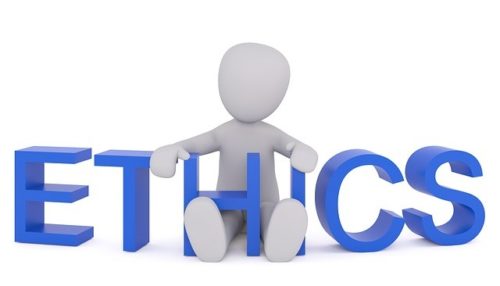-
North Dakota 15 Credit Bundle with 3 Ethics Bundle Courses Include: Bundle Courses: Criminal Mitigation: Pre-Pleas & Pre-Sentencing Strategies (1 General Credit) Borderline Personality Disorder: Pre-Plea & Pre-Sentencing Mitigation Strategies (1.25 General Credits) Is That a Worker or an Employee? Questions & Answers on Worker Classification (1.25 General Credits) No One Makes It Out Unscathed: The Effects of Personal Trauma and Stress On Our Lives (1 Ethics Credit) Intermediate Topics: Title IX (1.5 General Credits) Pre-sentence Investigation (PSI) Critique: Mitigation as Counter Strategy in Child-Pornography Cases (1.25 Credits) Anti Money Laundering for Business Lawyers (1.25 General Credits) Entity Formation 101 (1.25 General Credits) The Art and Science of Hourly Billing (1 Credit) A Lawyer's Guide to Raising Capital (1.25 General Credits) Philosophy of a Business Legal Counselor (1 Credit) Ethics Compliance for Solo Practitioners (1.25 Ethics Credits) Introduction to Non-Profit Law (1.25 General Credits)
-
Off the Clock: Professional Ethics On Personal Time Most legal ethics programs focus on how applicable rules, laws, and related opinions govern a lawyer´s behavior when he or she is practicing law. But what rules apply to a lawyer´s behavior off the clock? The answer is: ethically, a lawyer is never off the clock. This program will focus on the rules, statutes, case law, principles, and guidelines that govern a lawyer’s actions, conduct, and speech, during personal time. It will break down and analyze Professional Rule of Conduct 8.4, Misconduct, breaking down each subsection into informative, practical examples, and present practical illustrations and informative case examples from around the country of how off the clock behavior can have on the job consequences.
-
Ohio 24 Credit Bundle with 2.5 Ethics/Attorney Conduct - All Courses Approved in Ohio Bundle Courses Include: Religious Land Use and Institutionalized Persons Act (2 Credits) Civil Settlement Techniques (1.5 Credits)
Be It Resolved - Striving for a (Realistic) Work/Life Balance (1 Attorney Conduct Credit)
When Good Enough Isn't Good Enough - Perfectionism in the Legal Profession (1 Attorney Conduct Credit)
Ethical Obligations for Clients with Mental Health Impairments (1 Attorney Conduct Credit)Navigating Stormy Parenting Plans - Process Over Chaos (1 Credit)
Estates for Personal Injury Litigators (1 Credit)
Virtual Isolation: Is Hyperconnectivity Helping or Harming the Legal Professional? (1 Attorney Conduct Credit) Welcome to the NFL, Rook! Lawyers Wrangling Elites & Egos (1.5 Credits) Lemon Law (1 Credit) Malpractice Actions: Elements and Defenses (1.5 Credits) Everything You Want to Know About Distressed Lawyers (1 Attorney Conduct Credit) Don't Give Up 5 Minutes Before the Miracle (1 Attorney Conduct Credit) Story Telling in the Courtroom Part 1 (1.5 Credits) Story Telling in the Courtroom Part 2 (1.25 Credits) Story Telling in the Courtroom Part 3 (1 Credit) Digital Millennium Copyright Act (1 Credit) The Fifth Amendment’s Essential Role in Offshore Audits (1.5 Credits)Basics of How to Obtain a Patent (2 Credits)
-
Ohio 24 Credit Bundle with 2.5 Ethics/Attorney Conduct - All Courses Approved in Ohio
-
Online Civility and Professionalism for Attorneys Online Civility and Professionalism for Attorneys In the realm of legal practice, the issue of incivility among lawyers is a multifaceted concern, with varying beliefs about its prevalence and causes. Some point to the portrayal of lawyers in media and a blurred line between assertiveness and rudeness, while others blame technology and the divisive state of public discourse. Several states, like New York, Utah, and Illinois, have established programs and hotlines to address ethics and professionalism. Surveys suggest that a majority of lawyers perceive their colleagues as civil, yet many still report experiencing uncivil behavior. In California, attorney guidelines emphasize civility and respect in communications and interactions within the legal system. To counter incivility, legal professionals are advised to maintain written records of inappropriate conduct, engage in open discussions with opposing counsel, and seek guidance from mentors or senior attorneys. Additionally, online civility presents distinct challenges due to anonymity, potential miscommunication, and the risk of harassment. Lawyers are encouraged to be cautious about sensitive topics and consider legal actions if harassment occurs. Agenda/ Obejectives - Understanding the Roots of Incivility and Professionalism - 6 Minutes - State Initiatives and Ethics Programs - 8 Minutes - Survey Insights and Lawyer Perceptions - 7 Minutes - Attorney Guidelines of Civility and Professionalism - 11 Minutes - Challenges in Online Civility and Professionalism - 8 Minutes - Strategies for Promoting Civility and Professionalism - 10 Minutes - Privacy and Sensitivity in Legal Practice - 8 Minutes - Taking Action Against Online Incivility and Professionalism - 7 Minutes
-
Order in the Court: Ethical Interaction With Judges Lawyers have a duty to uphold ethical standards while zealously advocating for their clients. But where is the line when it comes to challenging judges and their rulings? This program will explore the ethical rules that govern a lawyer's interaction with judges both in and out of the courtroom, using real-life examples and cases as illustrations. It will delve into the ethical considerations of not only what lawyers can say to judges in the courtroom, but also what they can say about them in the court of public opinion. This course will provide a thorough analysis of contemporary courtroom dynamics between attorneys and judges, as illustrated by case law, rules of professional conduct, as well as recent high-profile cases. It will discuss the ethical dilemmas that attorneys face in attempting to gain the best advantages for clients, while adhering to the boundaries of applicable ethical and legal standards. Agenda
- Introduction to the importance of ethical considerations in a lawyer's interaction with judges
- Exploration of ethical rules that govern a lawyer's interaction with judges in and out of the courtroom
- Analysis of ethical considerations for what lawyers can say to judges in the courtroom and in the court of public opinion
- Examination of contemporary courtroom dynamics between attorneys and judges through case law, rules of professional conduct and high-profile cases
- Discussion of ethical dilemmas that attorneys face in attempting to gain the best advantages for clients within the boundaries of applicable ethical and legal standards
-
Oregon 45 Credit Bundle with Ethics, A/J, Child/Elder Abuse, & Mental Health - All Courses Approved in Oregon Bundle Courses Include:
Unfair, Deceptive, or Abusive Acts or Practices (UDAAP) - (1.25 Credits)
Taking Off the Gloves: What to Expect in U.S. Tax Court (1.5 Credit) How the IRS Reconstructs Income in Tax Fraud Cases (1.5 Credit) Cross Examination Made Simple (1.5 Credit) Direct Examination: Making the Witness Look Good (1.25 Credits) Anatomy of a Civil Tax Controversy (1.5 Credits) Opening Statement As a Story 101 - (1 Credit) Opening Statements As a Story - 102 (1.5 Credits) Closing Arguments (1.75 Credits) Fair Debt Collection Practices Act - (1 Access to Justice Credit) Information Law Firms Collect and Store – What to do in the Event of a Cyber Breach? - (1.25 Credits) Story Telling in the Courtroom Part 1 - (1.5 Credits) Story Telling in the Courtroom Part 2 - (1.25 Credits) Story Telling in the Courtroom Part 3 - (1 Credit)Basics of How to Obtain a Patent (2 Credits)
The Fifth Amendment’s Essential Role in Offshore Audits (1.5 Credits) Digital Millennium Copyright Act (1 Credit) NCAA & Name, Image, Likeness – Updates & Anarchy in America! (1.25 Credits) Paying for Referrals: A Danger to the Payor and Recipient's Freedom (1.25 Credits) Dealing with the Disruptive Practitioner in a Legally Compliant Manner (1 Credit) Psychosocial Evaluations and Consultation in Civil Litigation: Strategies to Understand and Humanize the Client - (1.25 Credits) The Anti-Kickback Statute (1 Credit) The Healthcare Quality Improvement Act: How to Achieve Immunity in Your Peer Review Process (1 Credit) Physician Employment Agreements: Problem Areas that can be Landmines (1 Credit) NFL Contract Advisors – “So You Want To Be An Agent" (1.75 Credits) Order in the Court: Ethical Interaction With Judges (1 Ethics Credit) Effective and Ethical Use of Experts (1 Ethics Credit) Ethical Issues - Pro Bono Representation: Help the Profession Help Others (1 Ethics Credit) Online Civility and Professionalism for Attorneys (1 Ethics Credit) Unauthorized Practice of Law: Ethical Dilemmas and the Rule of Law (1 Ethics Credit) The Impact Of Internet and Sports Betting for Lawyers (1 Mental Health/Substance Abuse Credit) Elimination of Bias in the Legal Profession: Both Personally and Professionally (1 Access to Justice Credit) Technology & Bias Spreading It And Stopping It (1 Access to Justice Credit) Immigration Basics: Coming to America and Staying (1 Access to Justice Credit)Understanding Oregon's Legal Landscape for Child and Elder Abuse (1 Abuse Reporting Credit)
Evidence 101 (1.5 Credits) Evidence 102 - (1.25 Credits) Microsoft Office 365 For Attorneys (1 Credit) -
Overcoming Common Barriers in a Social Security Disability Case Join Disability Law expert Scott Daniels in this riveting CLE program on how to best advocate for your client in a Social Security Disability case. Mr. Daniels will explain eligibility issues, lack of medical evidence, and gaps in a claimant’s work history. Finally, the program will highlight some frequent mistakes made by Administrative Law Judges. Daniels will keep you entertained as he teaches plaintiffs' attorneys how to zealously represent their clients at these important hearings. This program is a must watch for any attorney wishing to learn more about Social Security Disability cases. Agenda Applicable Social Security Laws Types of Disability Programs Evaluation Process Federal Disability Process Case Examples
-
Overview of the Freedom of Information Act In this timely and compelling CLE program, Attorney, Peter Sorenson presents “Overview of the Freedom of Information Act”. The program begins discussing how to help attorneys - in all fields of practice - learn how to more successfully navigate the FOIA process to better support their clients. Mr. Sorenson continues to explain the phases/steps of the FOIA process and the background and Purpose of FOIA. Mr. Sorenson then covers case law, hypotheticals, and practical tips to increase a positive FOIA request. The program concludes with an overview of the administrative appeal phase, and the judicial review phase. This program is a must for any attorney.
-
Paying for Referrals: A Danger to the Payor and Recipient's Freedom.



